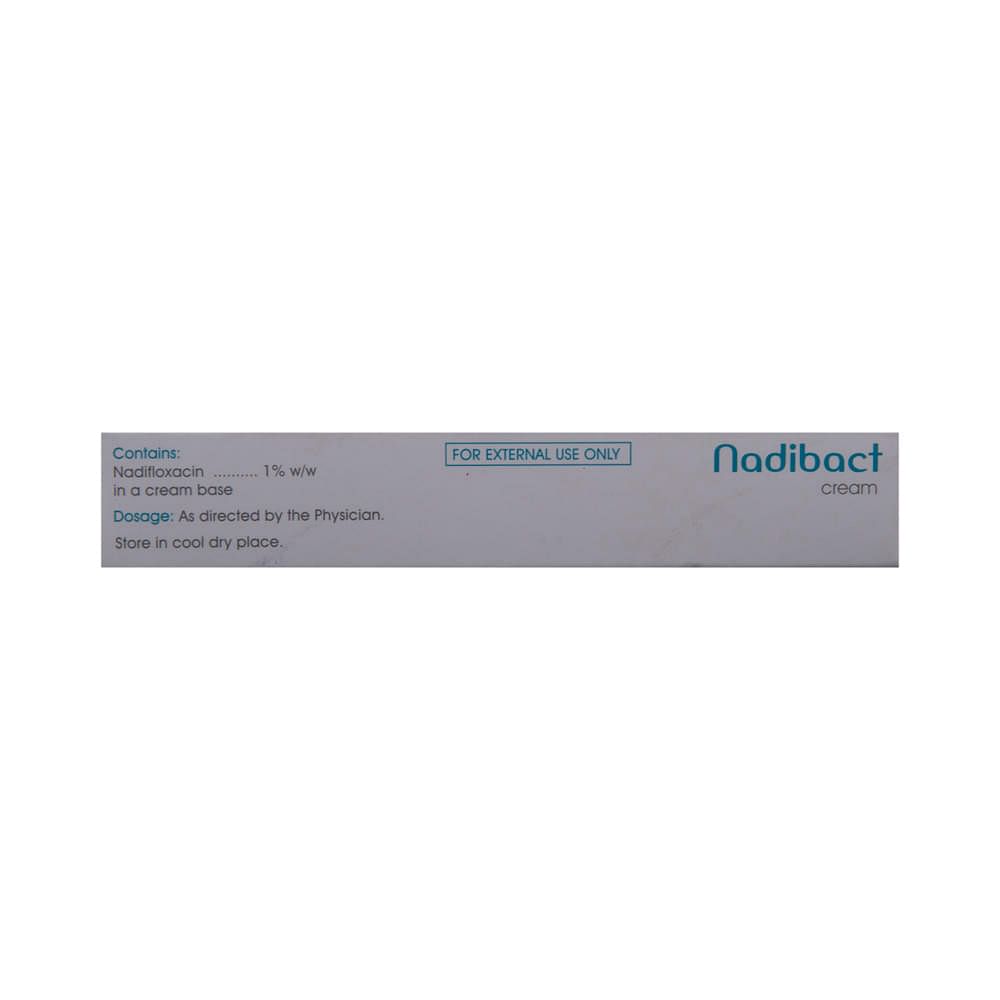
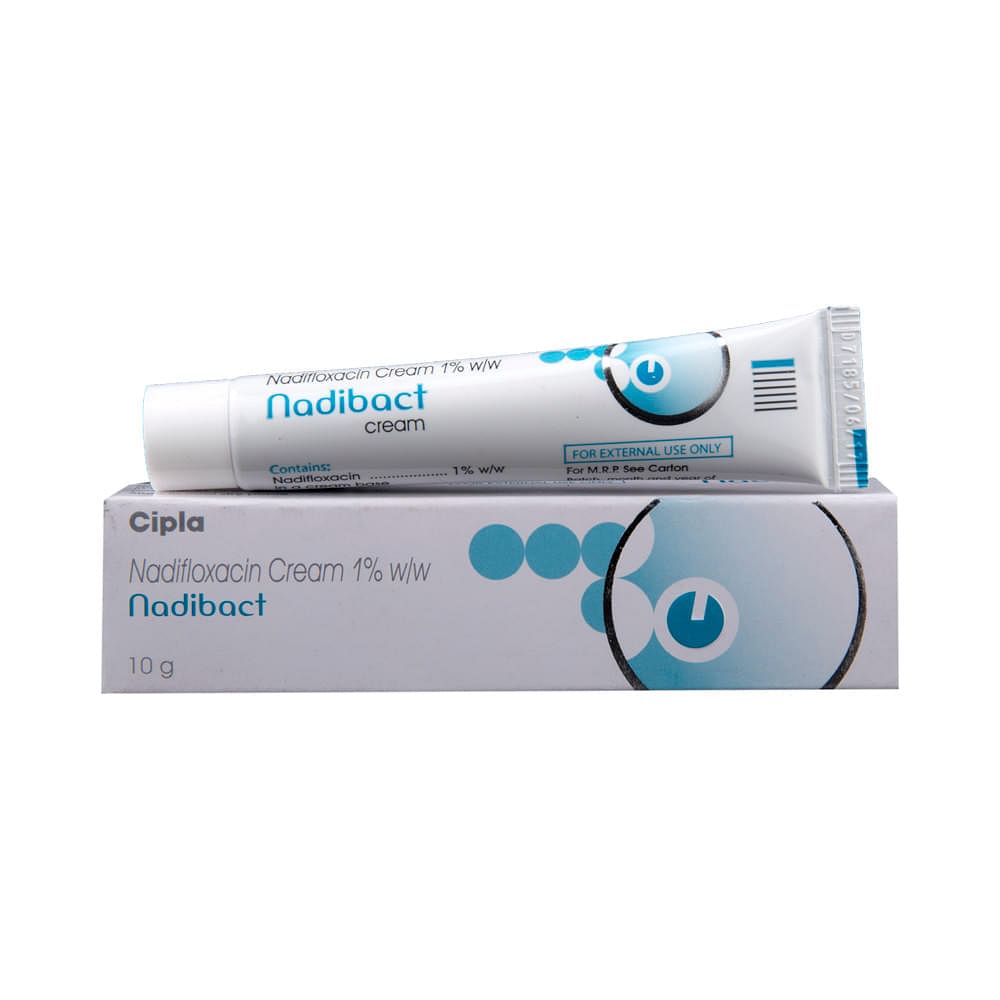
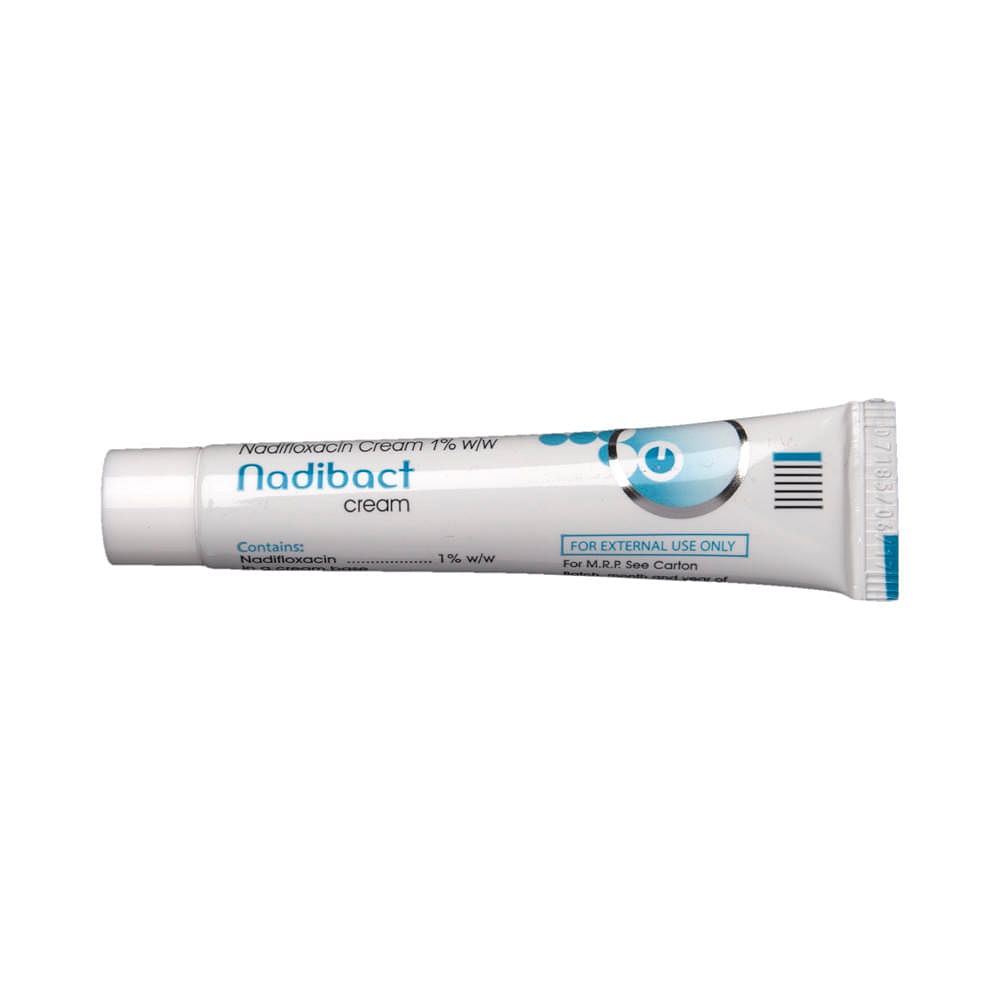
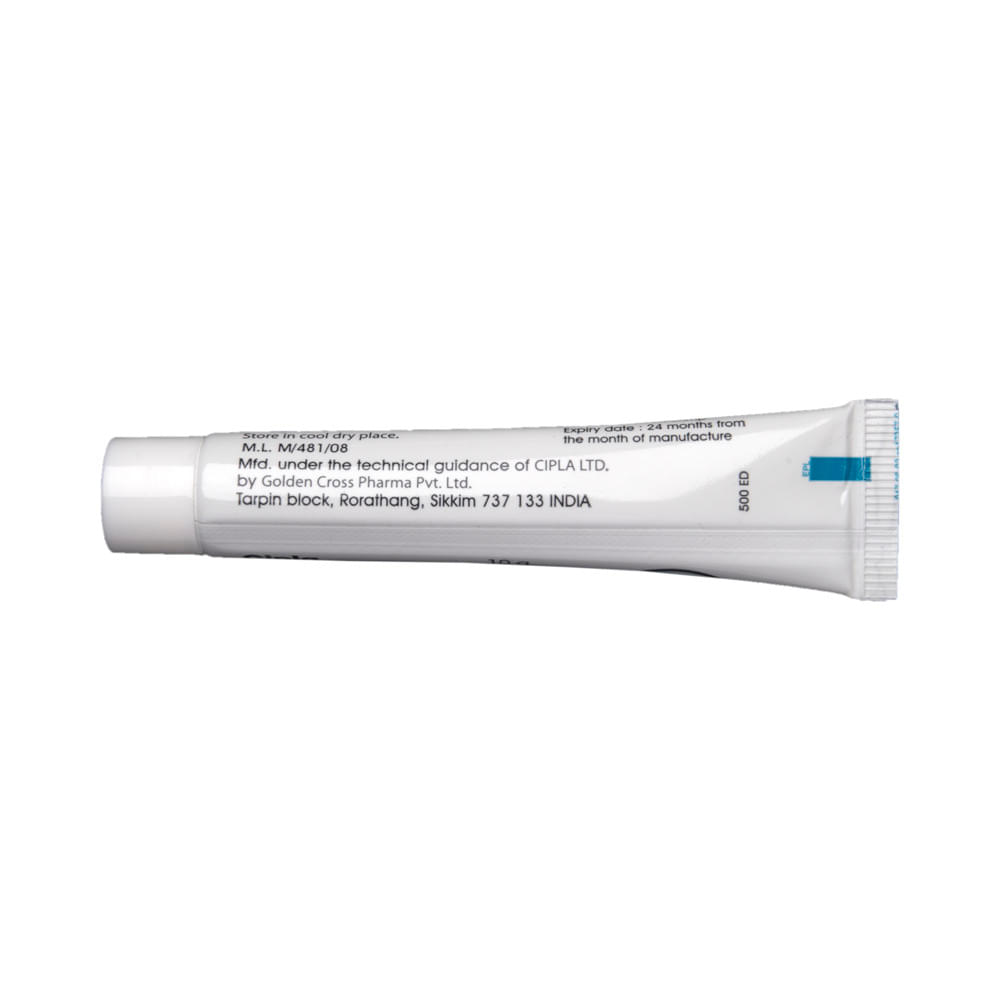
Nadibact Cream
Manufacturer
Cipla Ltd
Salt Composition
Nadifloxacin (1%w/w)
Key Information
Short Description
Nadibact Cream is an antibiotic that helps in the treatment of bacterial skin infections by stopping the further growth of the causative microorganisms.
Dosage Form
Cream
Introduction
Nadibact Cream is for external use only. You should use it in the dose and duration as advised by your doctor. The affected area should be clean and dry before application of the ointment. You must wash your hands thoroughly before and after applying this medicine. Some common side effects include burning sensation, irritation, itching, and redness at the site of application. Please consult your doctor if these side effects persist for a longer duration. Do not use it in the eyes, mouth, or nose as it may irritate. If accidental exposure occurs, rinse immediately with plenty of water.
Directions for Use
This medicine is for external use only. Use it in the dose and duration as advised by your doctor. Check the label for directions before use. Clean and dry the affected area and apply the cream. Wash your hands after applying unless hands are the affected area.
Safety Information
Side Effects
It may cause temporary burning, itching, or redness at the application site. This is usually mild. Consult your doctor if you experience a more severe reaction.
Breastfeeding Warning
Nadibact Cream is probably unsafe to use during breastfeeding. Limited human data suggests that the drug may pass into the breastmilk and harm the baby.
Pregnancy Warning
Nadibact Cream may be unsafe to use during pregnancy. Although there are limited studies in humans, animal studies have shown harmful effects on the developing baby. Your doctor will weigh the benefits and any potential risks before prescribing it to you. Please consult your doctor.
Interacting Medicines
Rasagiline Selegiline Tizanidine Strontium Chloride
How it works
Nadibact Cream is an antibiotic. It kills the bacteria that cause skin infections by preventing the bacterial cells from dividing and repairing.
Quick Tips
Don't use it more often or for longer than advised by your doctor. Inform your doctor if your skin problem hasn't improved after seven days of treatment. Don't apply it to broken skin and take care to avoid getting it in your eyes, nose, or mouth. Don't cover the area being treated with airtight dressings such as bandages unless directed by a doctor as this may increase the risk of side effects.
Related Medicines
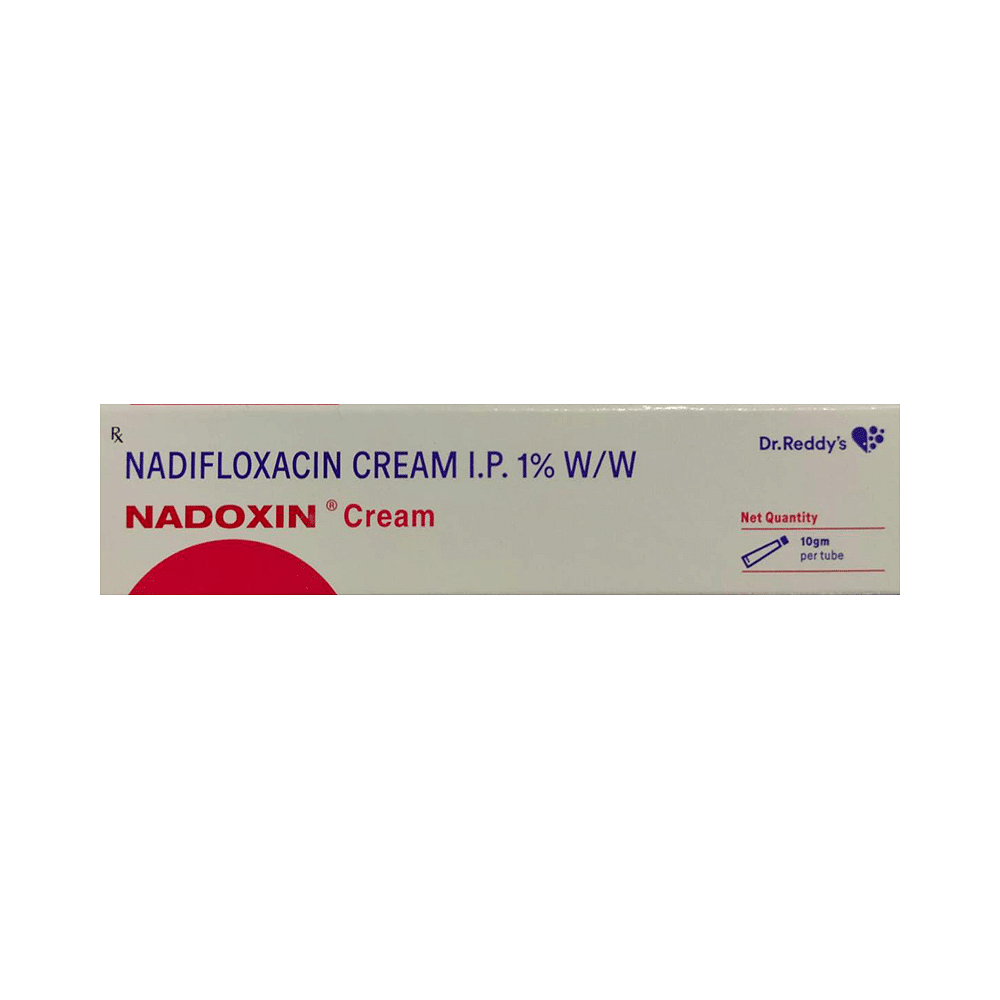
Nadoxin Cream

Naditop 1% Cream

Nadimycin Cream

Nadibest 1% Cream

Nadix 1% Cream
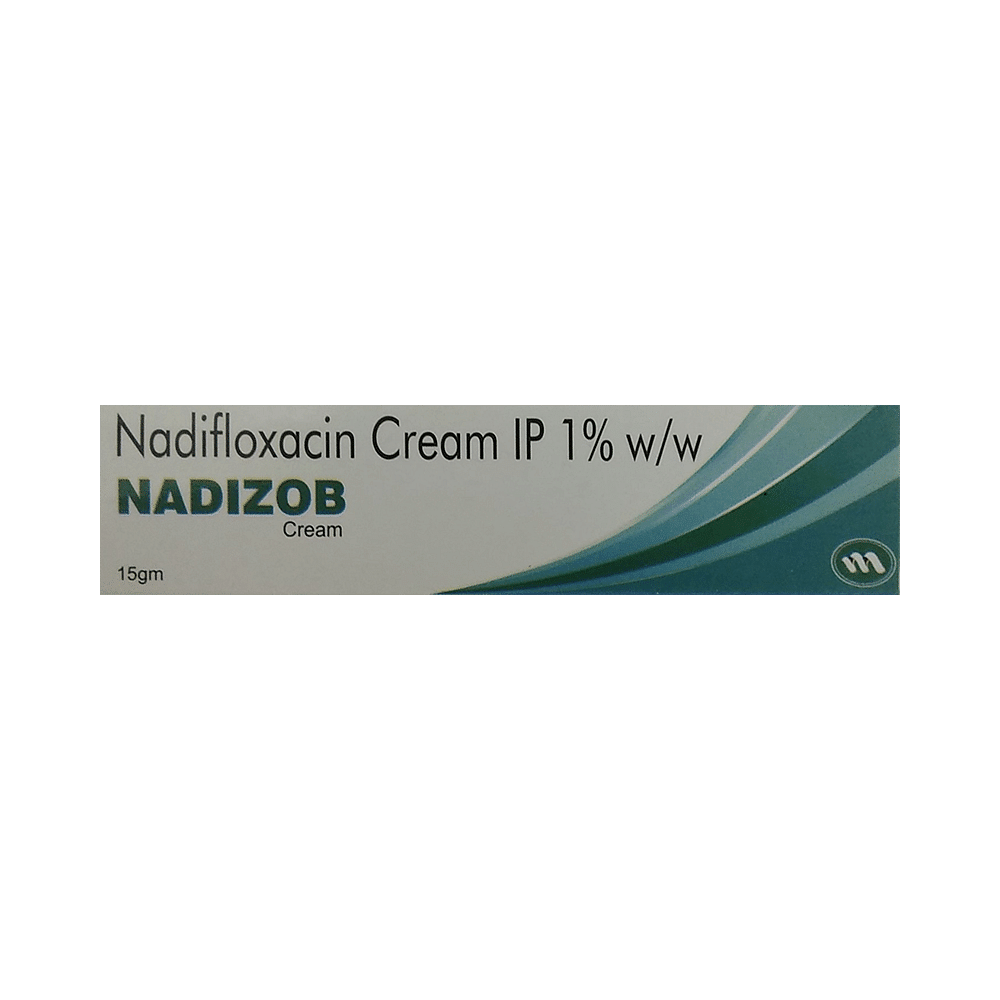
Nadizob Cream

Nadiskin Cream

Nadiwin 1% Cream
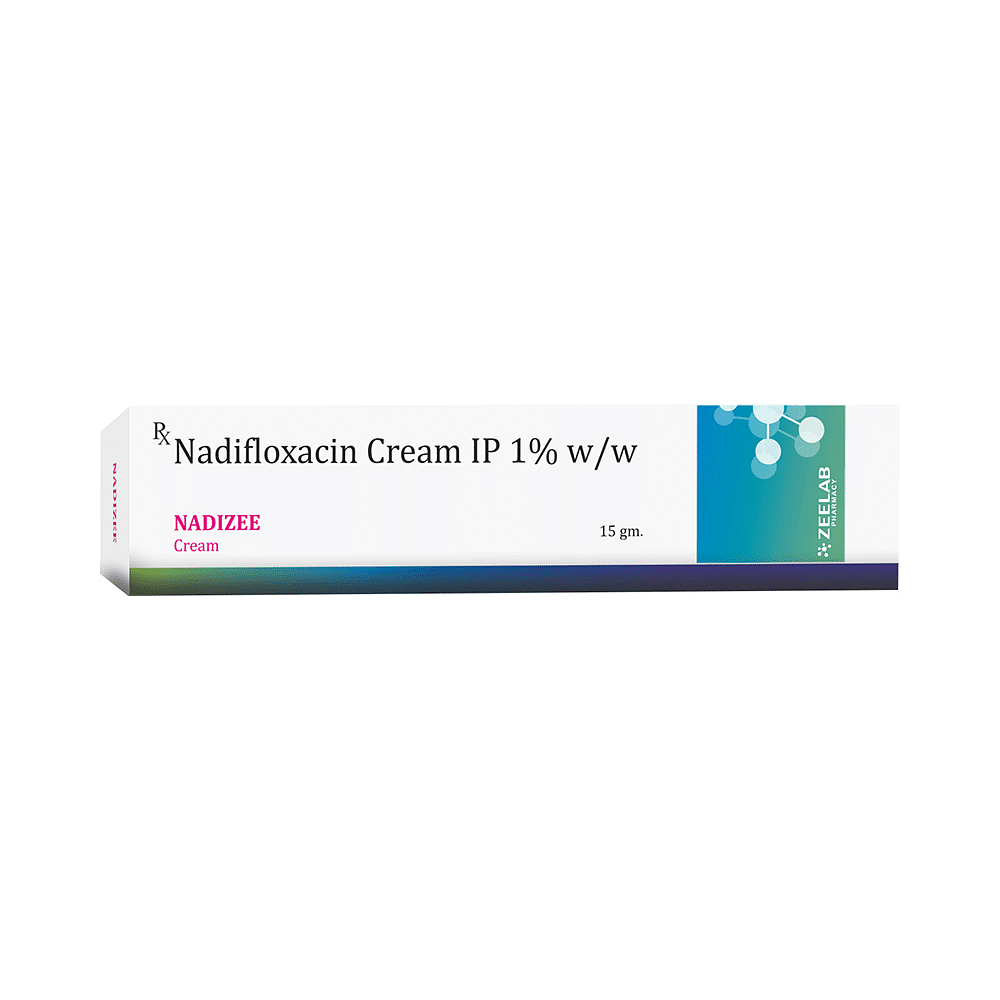
Nadizee Cream
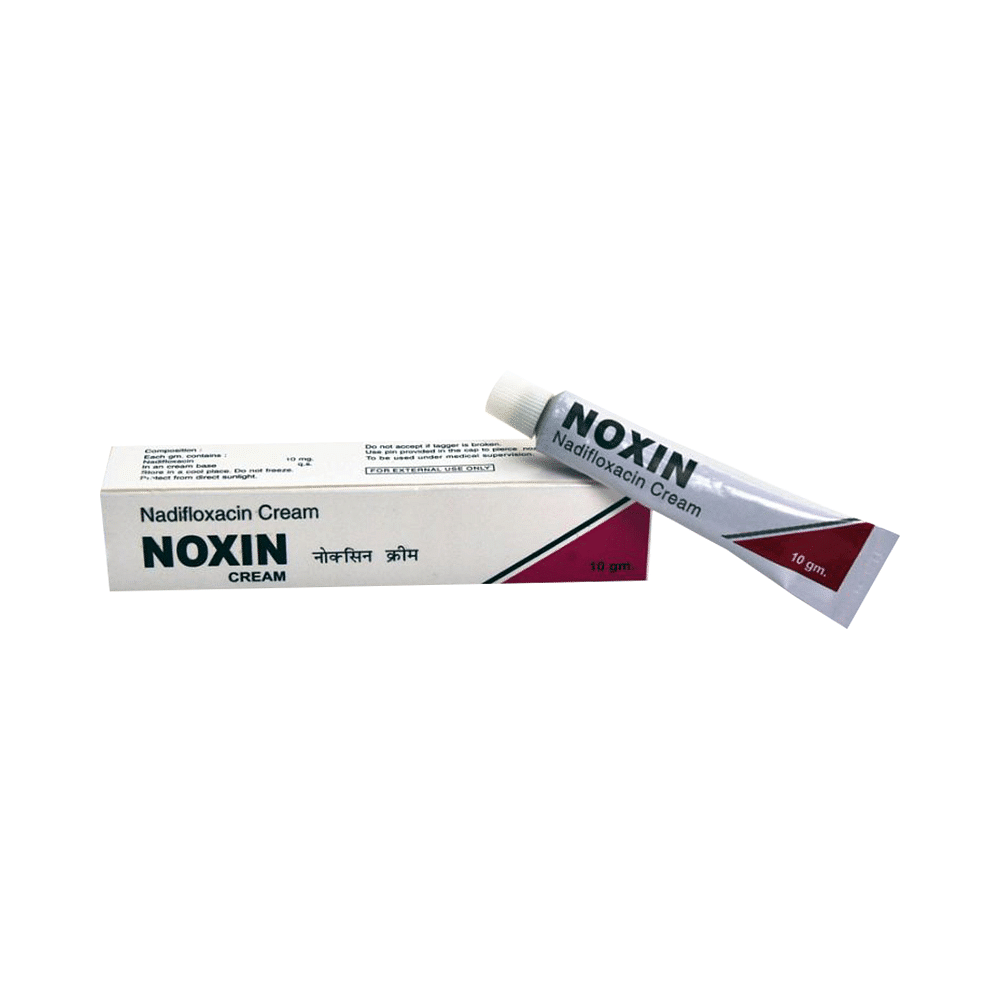
Noxin Cream


